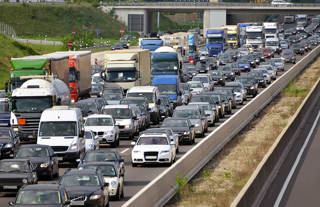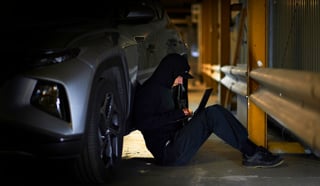A multi-agency operation in Devon and Cornwall has caught hundreds of drivers breaking the law.
Operation Logjam had a particular focus on light commercial vehicles (LCVs), with police reporting that 132 of the 560 drivers caught were van drivers.
Organised by the Devon and Cornwall Police No Excuse team, and aided by Alliance Roads Policing, Road Casualty Reduction and Armed Response colleagues, along with staff of the Peninsula Roads Safety Partnership and Highways England, the operation was as much about educating drivers as penalising offenders.
PC Ralph Delbridge of the No Excuse Team, who led the operation, said: “We were able to offer discretionary words of advice to several commercial drivers.
“Additionally, Highways England staff conducted surveys with drivers as part of their ‘Driving for Better Business’ approach and will follow these up with company and fleet managers to further educate, not only the drivers but also the employers.
“This helps to ensure that employers are aware of the speed restrictions their drivers have to work within and to ensure not only that realistic scheduling is compiled, so that they do not have to speed between jobs or deliveries, but also that they take into account the Health and Safety of their driving staff. This further protects all road users from the risk of harm or serious injury.”
Police say one car driver was recorded at 129mph on the M5 and one was reported for inconsiderate driving, ironically having headlight flashed an unmarked ‘No Excuse’ vehicle to get out of his out of his way as he sped along the A38.
Meanwhile, a delivery driver was found to have a tyre with only 1.2mm tread remaining with a further light commercial tyre worn with structural cord exposed.
Delbridge continued: “Working with our partner agencies is a superb way of ensuring that the education does not cease at the roadside and is taken forward as a joint approach to making the roads safe for all to use.
“We would like to see all our road users enjoying it with their families and not become the subject of a serious or fatal collision on our road network.”
























Login to comment
Comments
No comments have been made yet.